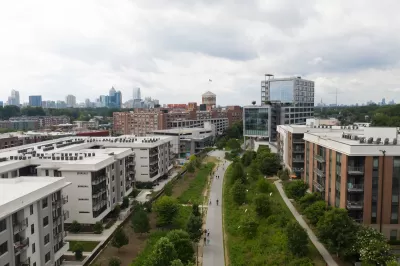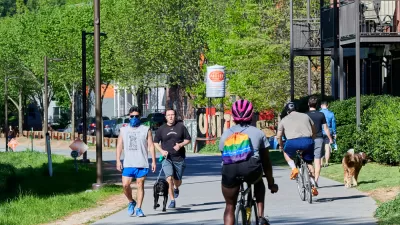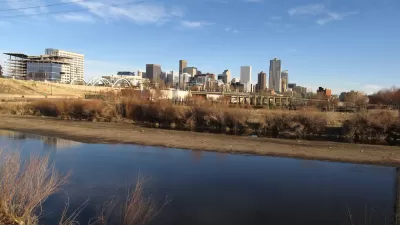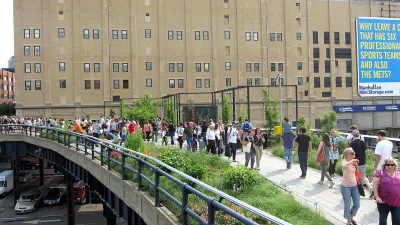New parks are great—but some projects displace the very people the green spaces are meant to serve.

“Again and again, researchers have found that access to urban green spaces – from parks to gardens to greenways – positively impacts multiple measures of health, such as community satisfaction, social cohesion and access to healthy foods.”
However, caution Viniece Jennings, Alessandro Rigolon, and Na’Taki Osborne in Next City, new parks can also lead to the displacement of low-income residents and, “perhaps counterintuitively, green gentrification can also exacerbate inequities in health, finances, quality of life and — ironically — access to green spaces.”
As the authors explain, “A scoping review on green gentrification and health examines numerous studies wherein residents experience a lower sense of community, diminished sense of belonging and less green space usage among long-term residents.” The research shows that increasing property values and a lack of renter protections can put greener cities out of reach for many households. “For example, although affordable housing was initially a part of the vision of the Atlanta Beltline, a shift in priorities and a state ban on rent control (among other factors) diminished this commitment,” the article points out.
“To support health equity as the pathway for everyone to achieve optimal health, cities must address the factors that diminish affordable housing and the consequences of green gentrification.” Some cities are working to address these issues using tools like inclusionary zoning requirements near large parks and rent stabilization initiatives.
The article concludes, “Improving neighborhoods is not the fundamental problem with gentrification and possible residential displacement. It’s the systemic force that aims to set the bar of who has long-term access to quality environments and affordable housing.”
FULL STORY: When Green Spaces Displace Residents, Our Cities’ Health Suffers

Planetizen Federal Action Tracker
A weekly monitor of how Trump’s orders and actions are impacting planners and planning in America.

Maui's Vacation Rental Debate Turns Ugly
Verbal attacks, misinformation campaigns and fistfights plague a high-stakes debate to convert thousands of vacation rentals into long-term housing.

San Francisco Suspends Traffic Calming Amidst Record Deaths
Citing “a challenging fiscal landscape,” the city will cease the program on the heels of 42 traffic deaths, including 24 pedestrians.

Defunct Pittsburgh Power Plant to Become Residential Tower
A decommissioned steam heat plant will be redeveloped into almost 100 affordable housing units.

Trump Prompts Restructuring of Transportation Research Board in “Unprecedented Overreach”
The TRB has eliminated more than half of its committees including those focused on climate, equity, and cities.

Amtrak Rolls Out New Orleans to Alabama “Mardi Gras” Train
The new service will operate morning and evening departures between Mobile and New Orleans.
Urban Design for Planners 1: Software Tools
This six-course series explores essential urban design concepts using open source software and equips planners with the tools they need to participate fully in the urban design process.
Planning for Universal Design
Learn the tools for implementing Universal Design in planning regulations.
Heyer Gruel & Associates PA
JM Goldson LLC
Custer County Colorado
City of Camden Redevelopment Agency
City of Astoria
Transportation Research & Education Center (TREC) at Portland State University
Jefferson Parish Government
Camden Redevelopment Agency
City of Claremont





























